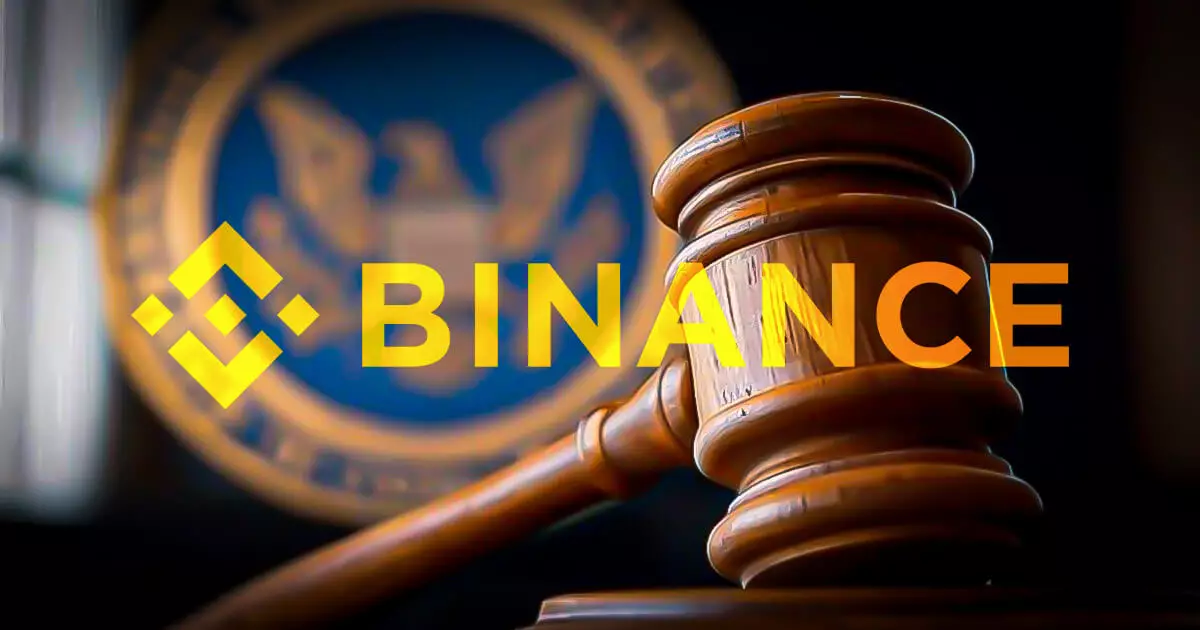In a bold twist within the volatile world of cryptocurrency, the U.S. Securities and Exchange Commission (SEC) appears to be backing off its aggressive stance against Binance, led by its enigmatic founder Changpeng Zhao, often called ‘CZ’. On May 29, the SEC requested a federal judge to dismiss its civil complaint against Binance, a move that challenges the dominant narrative of regulatory overreach that has plagued the crypto landscape. This unexpected retreat is all the more significant given the extensive historical context of the SEC’s actions against digital assets, which can often resemble a regulatory witch hunt rather than a measured response to legal violations.
Judge Amy Berman Jackson’s move to put the case on hold reflected a broader recognition that the existing framework of securities laws may not appropriately apply to rapidly evolving technologies like cryptocurrency. Perhaps for the first time, both camps—the SEC and Binance—indicated that the establishment of a new crypto task force led by Commissioner Hester Peirce could potentially lead to a more sensible resolution. This is a pivotal moment that might signal a shift toward a more rational and constructive regulatory environment.
Empowering Innovation Over Regulation
In the face of this tumultuous regulatory landscape, Binance’s declaration that the SEC’s case against them is “dismissed” is nothing short of a victory for innovation. Binance framed the decision as a cosmic “win for crypto,” applauding figures such as Chairman Atkins and the Trump administration for pushing back against what Binance calls “regulation by enforcement.” This perspective resonates with many who advocate for a more laissez-faire approach to technology and innovation.
In a field that promises extraordinary advancements, overly stringent regulation can stifle creativity. By dismissing this complaint, the SEC has potentially opened the floodgates for more entrepreneurial endeavors in the digital currency sector. It’s imperative that we do not lose sight of the inherent value of cryptocurrency—transparency, decentralization, and the democratization of finance. The dismissal should embolden investors, innovators, and developers to explore new blockchain solutions without the ubiquitous shadow of regulatory repercussions.
The Future of Digital Asset Regulation
However, while this dismissal appears to be a win, it is crucial to note that Binance.US still operates under a detailed consent decree which imposes strict compliance measures, including quarterly reports and third-party audits. The difference, however, is that this regulatory oversight is defined and predictable, allowing the company to plan accordingly. Thus, this situation acts as a soft template for how future crypto companies might navigate their own legal landscapes.
Nevertheless, the SEC’s case against Binance raised serious allegations about operational integrity, including accusations of inflated trading volumes and misleading investors. While these allegations were not substantiated in court, they serve as a compelling reminder that robust governance is essential in any financial environment—even one as fluid as cryptocurrency. Legal issues should not solely serve as regulators’ weapons; rather, they should initiate crucial dialogues around compliance, ethics, and investor protection.
Rethinking Regulatory Approaches
The manner in which this legal battle unfolded prompts us to question the entire framework of regulatory oversight in the crypto realm. Traditional paradigms may not aptly apply to an ecosystem driven by a rapid pace of technological advancement and globalization. If regulators can be more flexible and innovative in their approach, it can contribute to a more vibrant financial landscape that encourages new technologies without compromising integrity.
It’s worth noting that the SEC’s original complaint claimed that Binance skipped crucial steps to secure investor funds and failed to implement systems that deter market manipulation. This should serve as a clarion call for all crypto exchanges to cultivate robust governance frameworks. In this light, the dismissal of the complaint should not obscure the need for future diligence—whether by the SEC or the exchanges themselves.
As we reflect on this landmark case, it becomes evident that a recalibration of regulatory attitudes can pave the way for innovation, entrepreneurship, and better governance. The SEC’s decision, while undoubtedly a setback for traditional regulatory approaches, may accelerate the formation of a more balanced and fair playing field for all stakeholders involved. The implications expand far beyond Binance; they resonate throughout the digital asset industry at large, highlighting that the time for constructive dialogue rather than punitive measures has indeed arrived.



















Leave a Reply